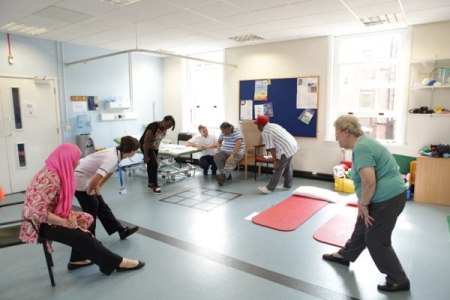Local innovations set for national spread
December 18, 2017Innovations born in south London are now being spread nationally
Better care for people with pain, eating disorders and high blood-pressure in pregnancy, thanks to local innovations set for national spread, says Anna King, who is Commercial Director of the Health Innovation Network.
With the papers full of snowstorms and Brexit, you may have missed the quiet revolution that is south London innovations dominating this year’s NHS Innovation Accelerator.
Day-by-day, step-by-step, our members and their staff are using innovation to improve outcomes for their patients. This fantastic endorsement means that more patients nationally will benefit from these home-grown innovations.
We know that good ideas do not often spread themselves. That’s why programmes like the NHS Innovation Accelerator (NIA) can make such a difference. The NIA is an initiative delivered in partnership between NHS England and the 15 Academic Health Science Networks (AHSNs). It supports and accelerates the uptake of high impact innovations so that patients can benefit from new products and services.
Each year it takes on a number of ‘fellows’ – people who are passionate about scaling their evidence-based innovation to benefit a wider population, with a commitment to share their learnings from their own work.
This year’s cohort was announced recently, and includes an impressive line-up of innovations that we in south London know well.
There are three locally developed innovative service models:
• ESCAPE-pain – a six-week group programme delivered to people aged 55+ with osteoarthritis (OA). Developed by the Health Innovation Network’s own Prof Mike Hurley, ESCAPE-pain is known to generate a return of £8 for every £1 spent.
• The FREED ‘first episode rapid early intervention service for eating disorders’ was developed by the South London and Maudsley NHS Foundation Trust model and provides a rapid early response intervention for young people aged 16 to 25 years.
• The home monitoring of hypertension in pregnancy (HaMpton) new care pathway, developed locally by St George’s, uses an app for monitoring high blood pressure at home, empowering expectant mothers to be involved in their own care.

The line-up also includes current and former DigitalHealth.London accelerator companies: Oviva, Transforming Systems and My Diabetes My Way. These innovations are varied – from apps that help patients decide on urgent care depending on the size of the queue to new ways of self-managing diabetes.
With tight budgets, maintaining and spreading these initiatives is more important than ever. These examples from south London are far from isolated or unique – AHSNs across the country are supporting a wide variety of innovative service models and technologies, that are not only improving outcomes, they are saving vital funds for NHS services.
It is difficult for staff to improve services through innovations whilst coping with increased demand and complex patient needs. In this context, it’s important that we recognise, celebrate, support and spread the innovative work of NHS staff, and their dedication to making life better for their patients.
The Health Innovation Network is keen to support any of its members who are looking to adopt innovations from the NHS Innovation Accelerator, so if you are interested in any of the areas mentioned please get in touch info@digitalhealth.london